“What we have to think about is what is the purpose of such a common European force. If it is defined, then anything can be built in the same way that NATO has had a capability-building process. In the same way, the European Union can do the same, we just have to set the goal,” said Major General László Sticz when asked about the possibilities of a common EU army.
“Security Maintained: International Actors and Missions on the Ground” was the title of the closing panel discussion at the Budapest Balkans Forum. The flagship conference of the Hungarian Institute of International Affairs, bringing more than 100 experts, decision-makers, and policy-shapers.
In that particular panel, the questions regarding the security policy challenges in the Western Balkans were answered by Brigadier General Federico Bernacca, Deputy Commander of the Kosovo Force of NATO, Brigadier General Pamela McGaha, Commander and Senior Military Representative of the NATO Headquarters Sarajevo, Major General Dr. László Sticz Commander of Operation EUFOR Althea in Bosnia and Herzegovina, Zsolt Bunford, Deputy State Secretary for Security Policy of the Ministry of Foreign Affairs and Trade and moderated by Csaba Rada, Head of the Western Balkans Department at the Hungarian MFA.
“We Don’t See any Direct Threats to the Security of Bosnia and Herzegovina”
The first question was about the most severe security threats to the Western Balkans. According to Brigadier General Federico Bernacca, the war in Ukraine has caused severe security threats in the Western Balkans, including Kosovo, where the price of commodities has increased, leading to frustration among the population. The war also exacerbated the situation by promoting fake news, creating a polarized information environment, and creating a social and political vacuum that can be exploited by irrational or emotional factors, particularly in Bosnia and Herzegovina (BiH from now on). “There is no military solution to the problems between Kosovo and Serbia. Only through diplomacy and dialogue led by Brussels can the problems be resolved for good.” Br. Gen. Bernacca told the audience.
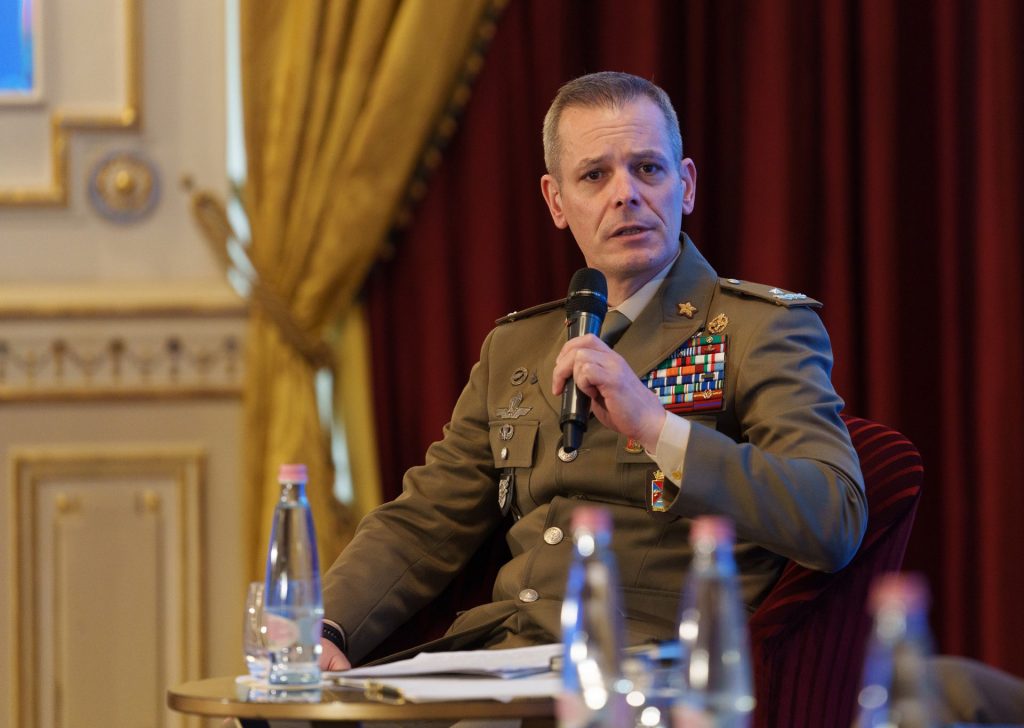
Federico Bernacca, Dep. Comm. of the KFOR, at the Budapest Balkans Forum (Source: @hiia_budapest twitter account)
“We don’t see any direct threats to the security of Bosnia and Herzegovina. The main challenges are of political nature, and EU integration (The EU leaders just agreed to open the formal accession negotiations with BiH – the editor) could resolve those,” emphasized Major General Dr. László Sticz, who is the first Hungarian commander of Operation EUFOR Althea, appointed in January 2024. The major general determined to support the EU accession of the country of the Balkans: “If everyone takes our side, the side of progress, we can be successful with appropriate cooperation, including our military engagement,” he added.
As a commander of the European Union forces in BiH, major general Sticz said, their aim is to support local authorities in maintaining a safe and secure environment. He mentioned that the recent strategic review identifies the risks, including the internal political parties diverting interests and external actors influencing the situation. He outlined other factors that needed to be taken into consideration, such as illegal migration, terrorism, hybrid warfare, and social issues that also influence the safe and secure environment. As a military expert, the commander assessed the security situation in BiH as calm and stable. He also confirmed that the EUFOR is vigilant and ready for challenges.
NATO’s Enduring Support to the Western Balkans
American Brigadier General McGaha first congratulated Hungary on its 25th anniversary of joining NATO. She stated that it is very important that the different military families can discuss their distinctive perspectives and roles in representing the alliance across the Western Balkans. She also highlighted the 20th anniversary of NATO’s presence in Sarajevo, where they have been working together with the local authorities to ensure peace in Bosnia. McGaha also mentioned the recent visits of senior NATO leaders, including Secretary General Jens Stoltenberg, to the NATO HQ in Sarajevo. These visits highlighted the alliance’s enduring support for Bosnia during this particular time of the Russian invasion of Ukraine.
“The message is enduring support and partnership for Bosnia and Herzegovina, especially in the shadow of the war against Ukraine. NATO will continue supporting local authorities, and our work will continue together.”
BG McGaha agreed with assessments made by Major General Sticz and Brigadier General Bernacca that the security situation across the region remains stable. However, she noted that reserve forces have been activated in both Kosovo and BiH, with reinforcements sent to BIH as a direct response to Russia’s invasion of Ukraine.“Our leaders have been clear that a security vacuum will not be allowed to develop in BiH,” B.G. McGaha concluded.
However, as Zsolt Bunford pointed out, the region faces economic problems, political instability, ethnic diversity, and illegal migration, which are linked to its predatory past.
“Stability cannot be seen as a purely security issue. Economic problems, political instability and illegal migration are also serious issues. We cannot separate stability from a credible European perspective.”
As the state secretary said, the Hungarian EU presidency should address a fair outlook and a plan for these countries’ admission to the EU bloc. The Deputy State Secretary also emphasized the EU integration process is an unfinished business. The EU’s performance is not positive, but if you take a look at NATO, three countries (Montenegro, Albania, and North Macedonia) are among the six already NATO members.
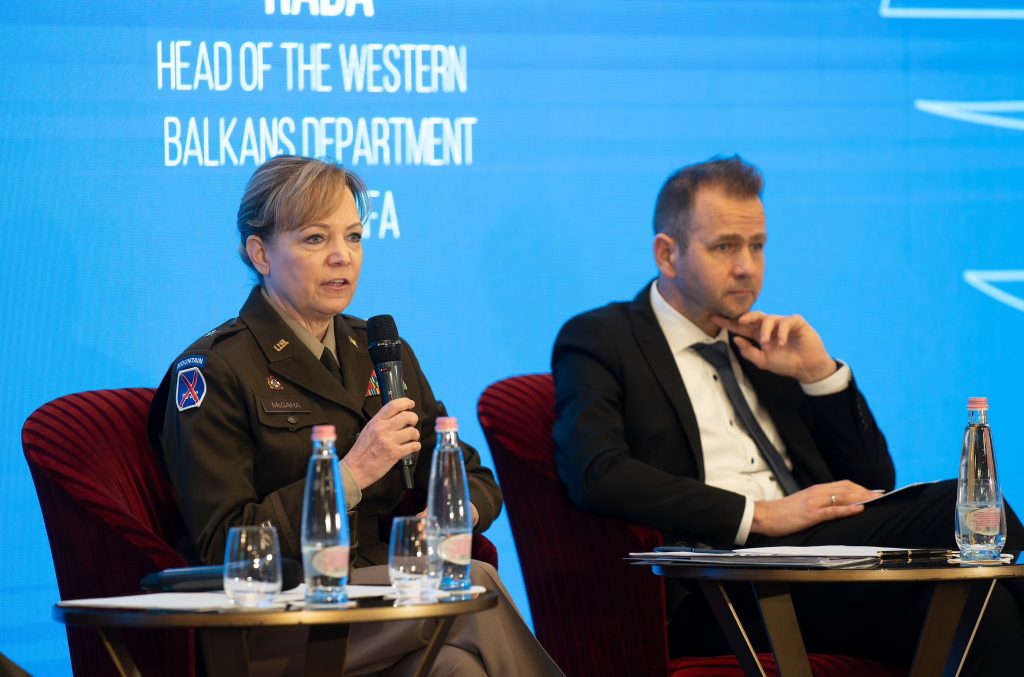
B.G. Pamela McGaha and Zsolt Bunford at the Budapest Balkans Forum 2024 (Source: @hiia_budapest twitter account)
Major general Sticz is also determined to support the EU accession of the country of the Balkans: “If everyone takes our side, the side of progress, we can be successful with appropriate cooperation, including our military engagement,” he added. The participants agreed that the EU’s enlargement is the key to regional stability, and the bloc should seize this opportunity.
The EUFOR cooperates with government actors, local residents, and other institutions, such as law enforcement agencies. “We rely on their support, and they rely on our support. So the cooperation is really double-weight cooperation,” the major general added. He also mentioned that the EUFOR has 19 LOT (Liaison and Observational Team) houses in the country, but soon, there will be 20 of them. “With this, we have the tool to connect the citizens and the population as well,” he pointed out.
Pamela McGaha reflected on the possible unification of the Bosnian army:
“Bosnia Herzegovina has been actively participating in NATO’s Partnership for Peace program since 2006. It participated in its first peace support operation in Afghanistan in 2009, and since then, it has continued to participate in peacekeeping and support operations”.
Don’t Mess with KFOR
The moderator recalled a major incident that happened last May in Kosovo with heavy injuries, especially regarding the Hungarian troops. In the city of Zvecan, violent clashes broke out in the standoff between local ethnic Serbs and ethnic Albanian authorities. Protesters were seen throwing stones and bottles at KFOR troops. NATO officials said about two dozen KFOR soldiers were injured in the unrest.
Brigadier general Bernacca praised the performance of Hungarian troops, and he expressed his hope that the injured soldiers would recover soon. But he also sends the message to everybody who attacks the KFOR units: “If you want to mess with our people, you will be dealing with the entire most powerful military organization on Earth.”
BG Bernacca also recalled that is his fifth mission in Kosovo. The first time he was there was in 2001. Since then, he has seen many changes in the KFOR structures. However, he highlighted that KFOR remains relevant because of its ability to adapt to serious crises. That requires them to keep their eyes open 24/7 in every corner of Kosovo, and that requires a lot of troops to do that.
At the end of the panel discussion, Csaba Rada concluded with the key takeaways: “There is no military solution for the conflicts, but we need to have our security presence there. EUFOR in Bosnia and Herzegovina and NATO KFOR in BiH and Kosovo are important to maintain security and stability. The European Union’s promise of the integration process is a way forward. We really hope that the integration of the Western Balkan countries will slowly, I would say, »retire« the military and police missions in the region.
***
“NATO has had a capability-building process for a very long time, which is a combination of nations’ contributions. In the same way, the European Union can do the same; we just have to set the goal,” Major General Dr. László Sticz answered Longbrief’s questions in an exclusive interview.
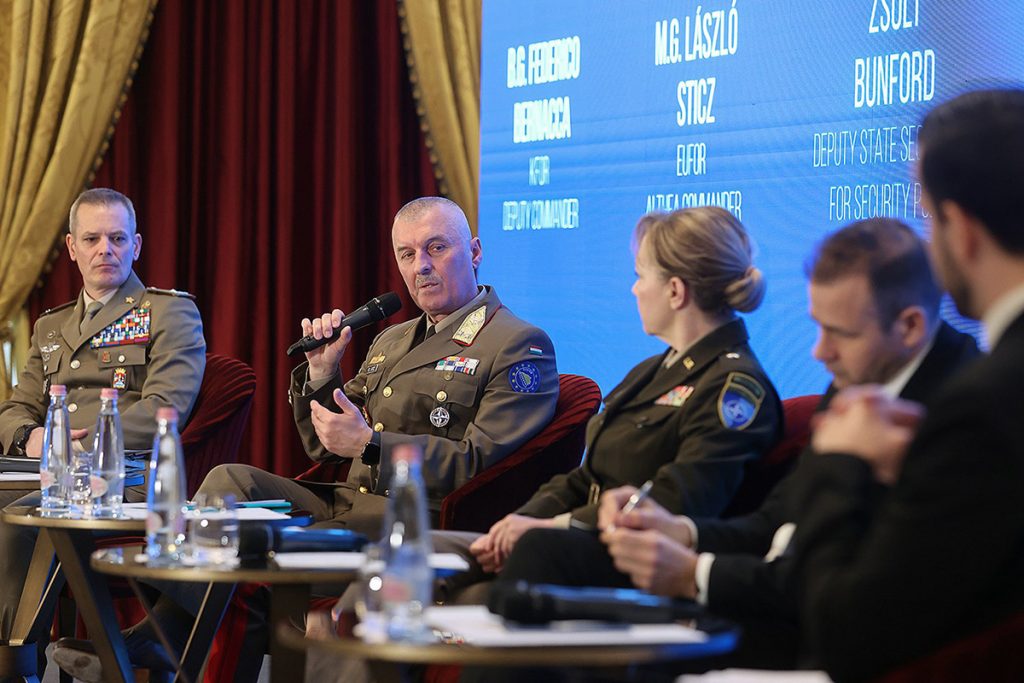
Major General László Sticz comm. of EUFOR Althea speaking at the Budapest Balkans Forum (Source: @hiia_budapest twitter account)
During your career, you have gained experience with KFOR and are currently leading the EUFOR mission in Bosnia and Herzegovina. Can you compare the two peacekeeping missions What are the main differences between a NATO-led and an EU-led peacekeeping operation?
The biggest difference, as described by Brigadier General Federico Bernacca, is that in KFOR, you need the troops and the military capabilities to be available on the ground so you can plan with them, and that is why they were able to control Kosovo “corner to corner”. In Bosnia, on the other hand, we have a completely different approach. There, our presence has this kind of deterrent effect. In order to deter actors that would like to create some sort of problem, they are prevented from doing so by an international military force, EUFOR. Our goal is also to provide a stable background in Bosnia. The number of troops and capabilities we currently have in the theater is sufficient for this objective. If the situation escalated or a major problem arose, EUFOR could call up reserves from the contributing nations, and we could these forces quickly. These are the main differences between the two approaches.
What mandate does the EUFOR have?
The mandate basically states that we are present in the country as secondary responders. The first responders are the police and the military forces of the country. Three entities can use these forces under their own constitutions. If there is a crowd control exercise where tempers flare and the police cannot control it, EUFOR has that capability. It goes to the scene and tries to restore public order with its crowd control capability. EUFOR’s mandate is peacekeeping, we are not a fighting force.
Can EUFOR intervene in a serious internal political conflict, such as a possible civil war?
No, that’s a completely different situation.
When can EUFOR units use their weapons?
Weapons can be used practically at any time to save the lives of our soldiers. So our patrols are carrying weapons. If they were attacked, they could and must defend their own lives.
What can you tell us about the armed forces in Bosnia and Herzegovina, especially the army? How viable is it under the current circumstances?
I think they are about where Hungary was 25 years ago when it joined NATO when we started to build the capability that is now beginning to mature. Bosnia is at the beginning of that journey. However, they are keen to develop a proper capability to defend the country or, if we think of the police, provide civil order. Even the resources are not quite there as they would like to have. So, it is a tiny step forward that the force can take. As General McGaha (head of the local NATO force) said, they are responsible for building the capacity of the army and providing them with advice. Nevertheless, at a certain point, in addition to advice and plans, you also need financial resources, which are not plentiful. The military organization of Bosnia and Herzegovina is similar to the state structure, so in each of the three infantry brigades, there is a Bosnian, a Serb, and a Croat battalion.
You command troops from 23 different nations, so you have an idea and experience of what it looks like to have so many nations working together in one military structure. My question is: As a soldier, what is your opinion on creating a common European army?
I think there are signs of this because the EU Battlegroups already exist, and nations have been contributing their capabilities to them for a long time. What we have to think about is what is the purpose of such a common European force. If it is defined, then anything can be built in the same way that NATO has had a capability-building process for a very long time, which is a combination of the contributions of nations. In the same way, the European Union can do the same, we just have to set the goal. Through that, we can get to the point where we can achieve something greater. When nations come together, they can achieve their goals much more easily through the application of cooperation. And that’s true for military alliances. I would also advise the people of Bosnia and Herzegovina to unite, to stop worrying about who is Bosnian, who is Serb, who is Croat. Because, at the end of the day, there is only one nation standing at the gate of the EU.
***
Edward P. Joseph also participated in the event. We asked him about the possible solutions to the challenges in the Balkans and the USA’s role in that. In a rarity, Edward P. Joseph has served in every permutation of the conflicts in former Yugoslavia — across war-torn Bosnia-Herzegovina, Croatia, Kosovo and (now) North Macedonia. Edward holds a J.D. from the University of Virginia and a B.A. and M.A. from Johns Hopkins University and the School of Advanced International Studies, respectively. He was also a helicopter pilot in the US Army Reserve.
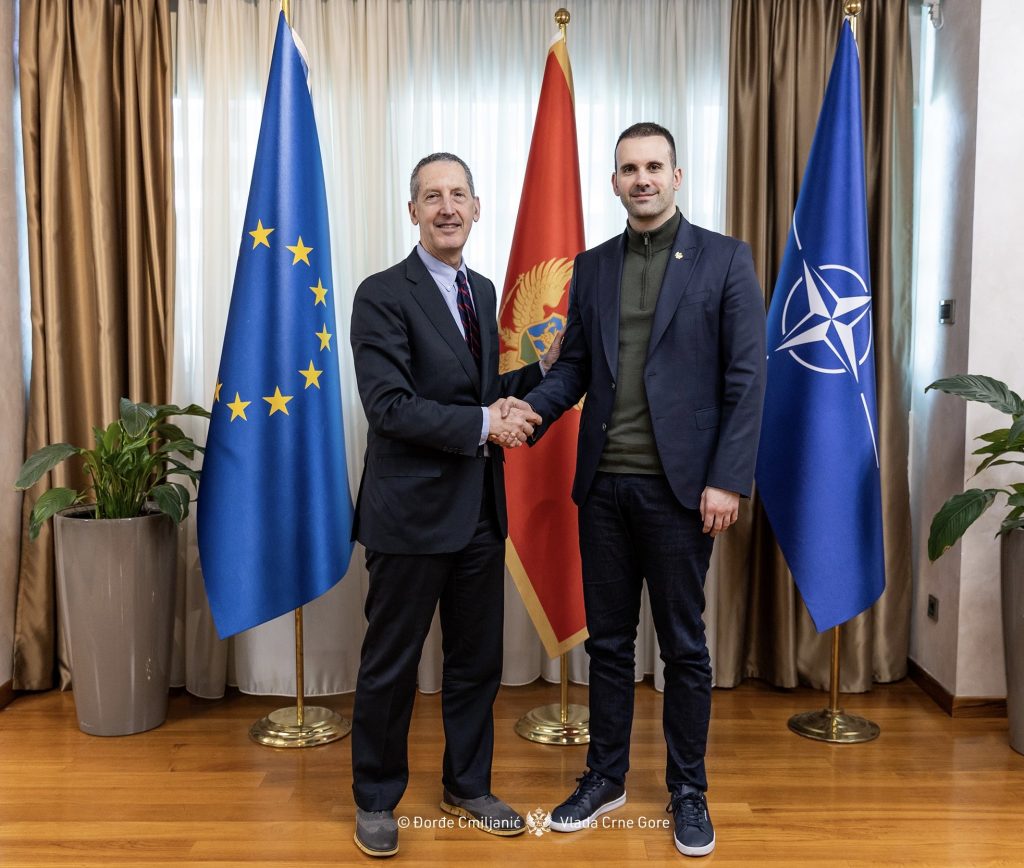
Edward P. Joseph (on the left) with Prime Minister Milojko Spajic of Montenegro (Source: Edward P. Joseph’s twitter account)
Why did you choose the Balkans as the area of your research?
Very briefly, I can tell you that I served in all the conflicts in the Balkans. All on the ground. So it’s not that I chose the Balkans, the Balkans chose me. It was through my Army Reserve Service in 1992. Before that, I was here in Budapest in ’91 for the open skies negotiations.
What roles did you fulfill during your career regarding the Balkans?
I was a diplomat in the State Department, I worked for the U.S. Arms Control and Disarmament Agency. Through my Army Reserve Service, I was connected with the UN. I was a Civil Affairs Officer at the UN just about throughout the war in Bosnia and Herzegovina. I also served in other conflict areas, such as Croatia, where Serbs and Croats were at war, as well as in North Macedonia and Kosovo. And I was the US-nominated Deputy Head of the OSCE Mission in Kosovo in 2012.
You’ve seen plenty of problems and objectives in the region. What is your opinion about how the EU can solve this Gordius knot, which is called the Balkans problem?
Maybe, in a way, the EU is 100 percent responsible for the problem. And the answer is theoretically yes, the EU could change this with the US. And we explain the know-how of this crisis management in a report published by Johns Hopkins University and the Wilson Center; it’s called From Crisis to Convergence. It’s actually a very simple explanation.
How can the problems regarding the Balkans be so simple?
We simplified this. The vast majority of the problem is Serbia. Serbia refuses to choose its orientation. Belgrad essentially rejects the Western order for the region, which is all these, the kind of form we saw there. They’re within their current borders, and the minorities within them have rights. But we are not there to create new states, we’re not there for further separation. So, how is the EU responsible? It’s also very simple because Serbia would choose the Western orientation if the EU, also within NATO, had unified positions. This is the key.
So, for example, does the West have to have a unified standpoint on the status of Kosovo?
The uniform recognition of Kosovo is essential. The problem is that five EU countries (Cyprus, Greece, Romania, Slovakia, and Spain), four of whom are in NATO, do not recognize Kosovo. Because of that, Serbia doesn’t recognize it either. This game requires Serbia’s participation. Because it has minorities in Croatia, in BiH, in Montenegro, and in Kosovo. So, it can play this game with its minority, projecting.
Belgrade uses its minorities to reach its goals.
Yes, they are. It’s more of a political problem. But if they change their position, even just towards NATO, it’s possible to solve it. In my anohter paper, I explain that if Ukraine recognized Kosovo, then the others would have to follow suit. I have titled this article as The Kyiv-Kosovo Catalyst.
Let’s turn to the US role in the region. If Donald Trump wins the elections, will he withdraw the US forces from NATO? If this scenario becomes a reality, what will happen in the Balkans?
If that’s the question, what would happen if the US role decreased, that would be very bad news because the EU alone is not capable of upholding peace in the region. However the EU is doing better, but it is still not taken as seriously as the US. The key examples are in both Bosnia and Herzegovina and Kosovo, where everyone looks at the US as the leader.

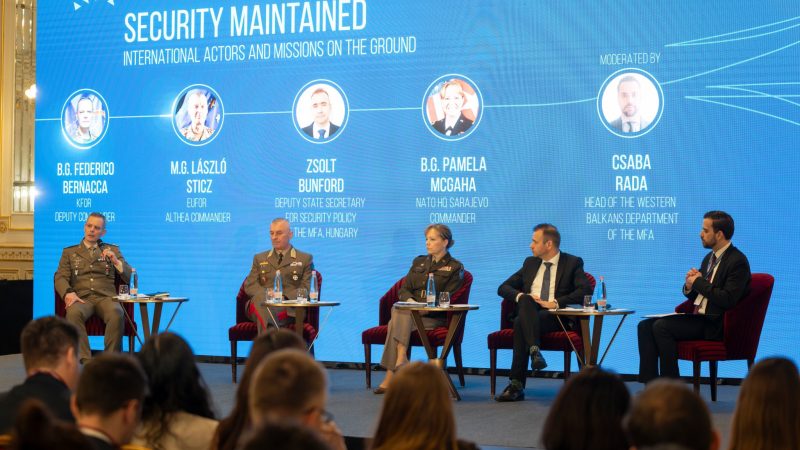
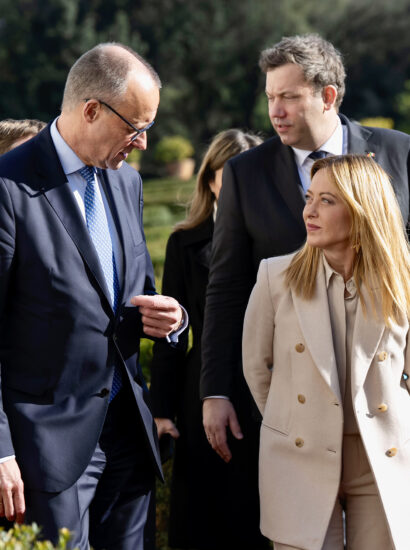
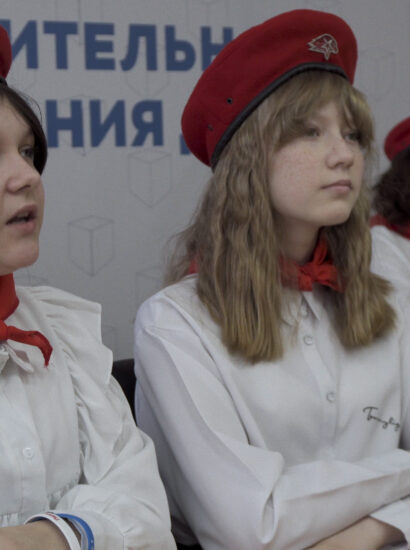




[…] dhe njohës i rrethanave politike në rajon, në një intervisitë për platformën hungareze “The Long Brief” të martën, tha se përderisa Serbia mbetet problemi më i madh në Ballkanin Perëndimor, […]
[…] gjeneral brigade dhe zëvendëskomandant i Forcës së NATO-s në Kosovë (KFOR), në kuadër të Forumit Ballkanik të Budapestit (BBF) që organizohet nga Instituti i Hungarisë për Çështje Ndërkombëtare (HIIA) tha se lufta në […]
[…] gjeneral brigade dhe zëvendëskomandant i Forcës së NATO-s në Kosovë (KFOR), në kuadër të Forumit Ballkanik të Budapestit (BBF) që organizohet nga Instituti i Hungarisë për Çështje Ndërkombëtare (HIIA) tha se lufta në […]
[…] gjeneral brigade dhe zëvendëskomandant i Forcës së NATO-s në Kosovë (KFOR), në kuadër të Forumit Ballkanik të Budapestit (BBF) që organizohet nga Instituti i Hungarisë për Çështje Ndërkombëtare (HIIA), dërgoi një […]
[…] së NATO-s në Kosovë (KFOR), Federico Bernacca, në kuadër të Forumit Ballkanik të Budapestit (BBF) që organizohet nga Instituti i Hungarisë për Çështje Ndërkombëtare (HIIA), dërgoi një […]
[…] i KFOR-it, Federico Bernacca, ka folur në kuadër të Forumit Ballkanik të Budapestit, i cili organizohet […]
[…] gjeneral brigade dhe zëvendëskomandant i Forcës së NATO-s në Kosovë (KFOR), në kuadër të Forumit Ballkanik të Budapestit (BBF) që organizohet nga Instituti i Hungarisë për Çështje Ndërkombëtare (HIIA), dërgoi një […]
[…] i KFOR-it, Federico Bernacca, ka folur në kuadër të Forumit Ballkanik të Budapestit, i cili organizohet […]
[…] gjeneral brigade dhe zëvendëskomandant i Forcës së NATO-s në Kosovë (KFOR), në kuadër të Forumit Ballkanik të Budapestit (BBF) që organizohet nga Instituti i Hungarisë për Çështje Ndërkombëtare (HIIA), dërgoi një […]
[…] together leading decision-makers and experts from the Western Balkans and Europe to discuss current issues and challenges in the region. The new types of threats, such as migration or energy supply […]